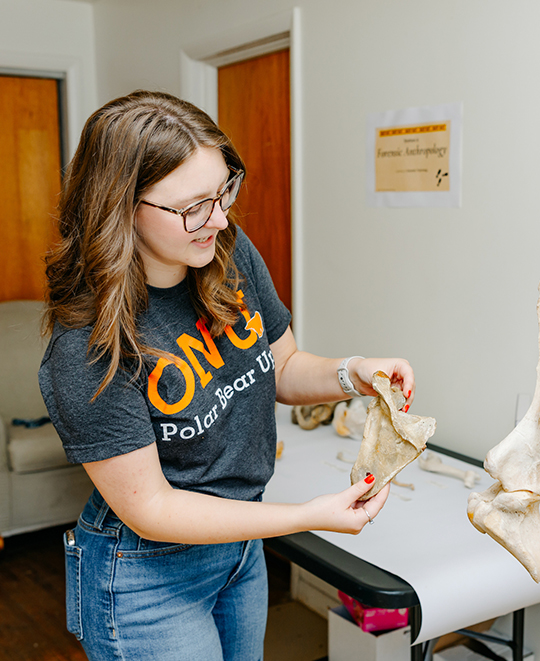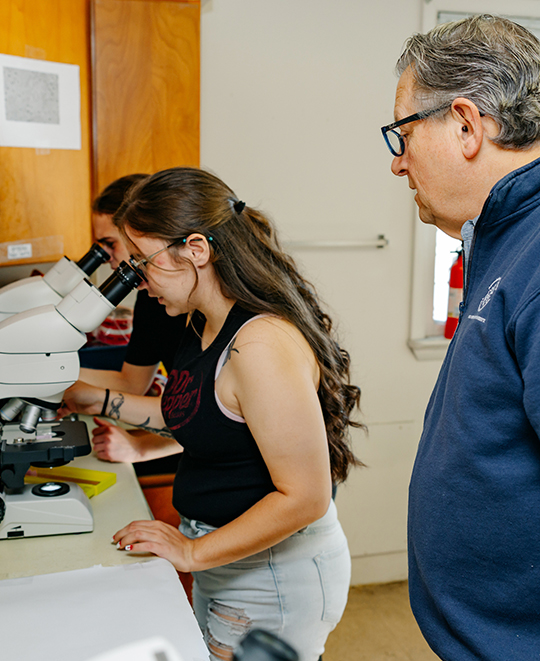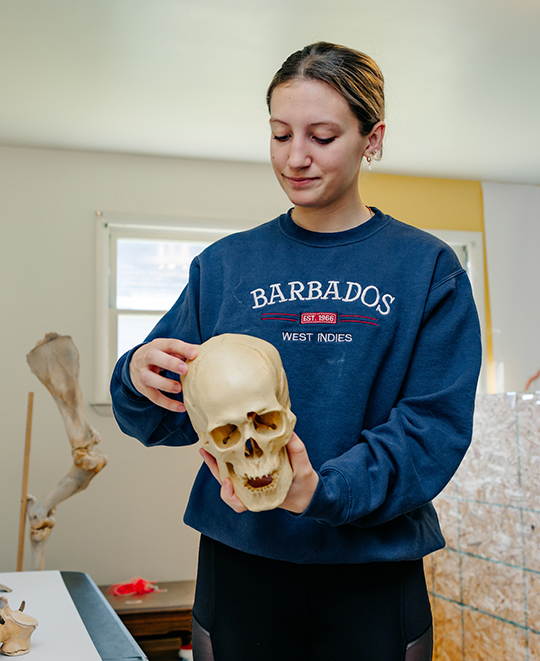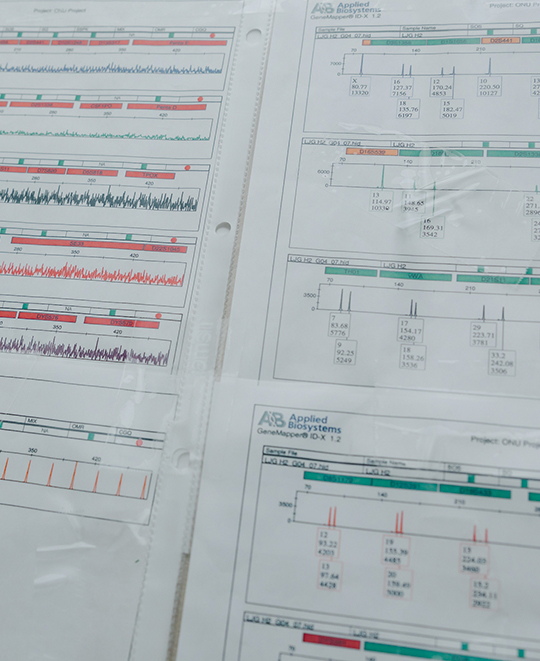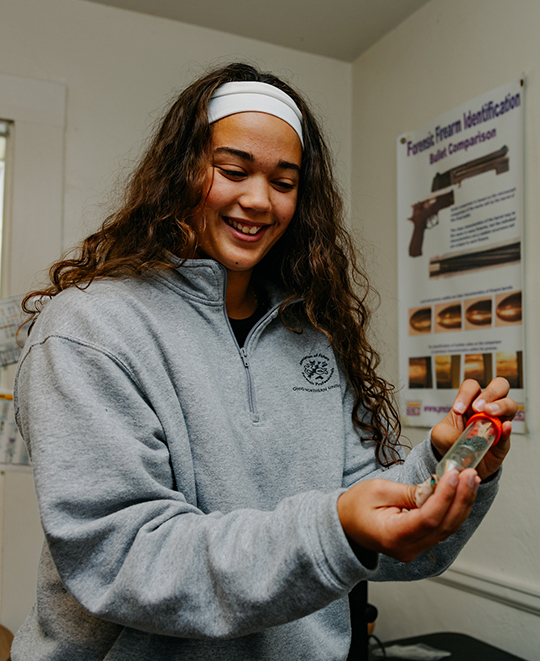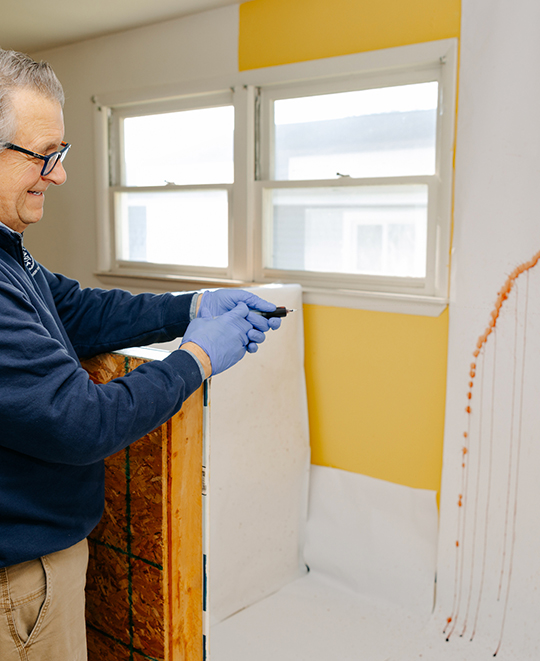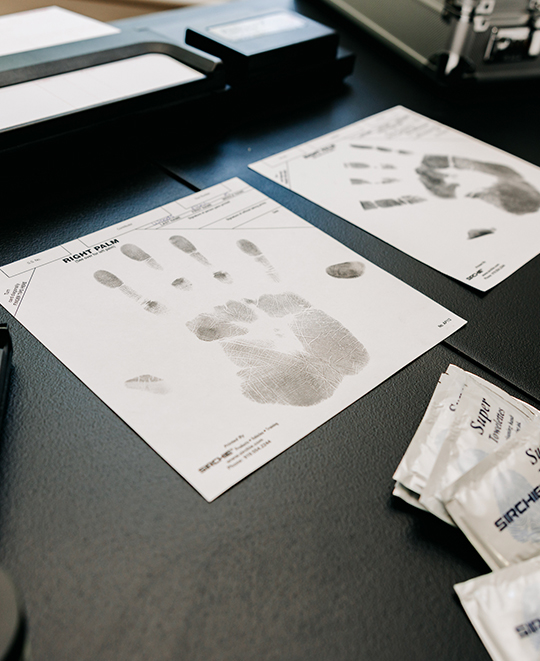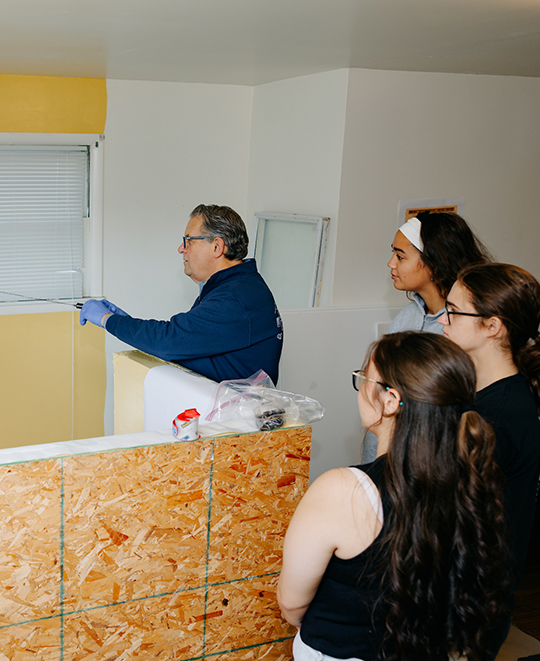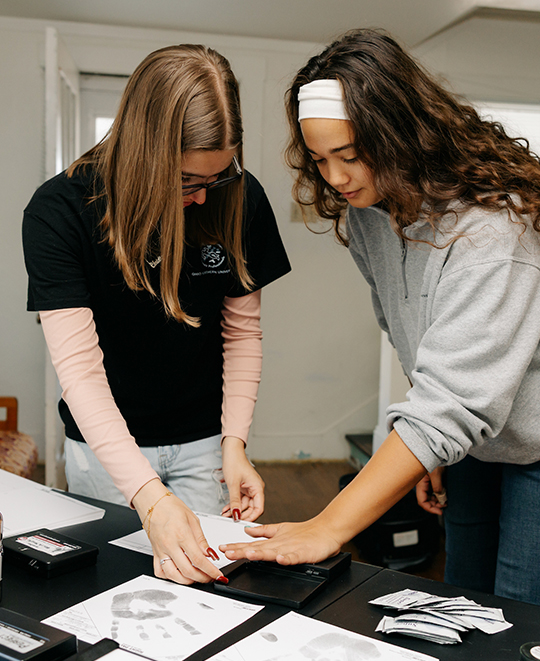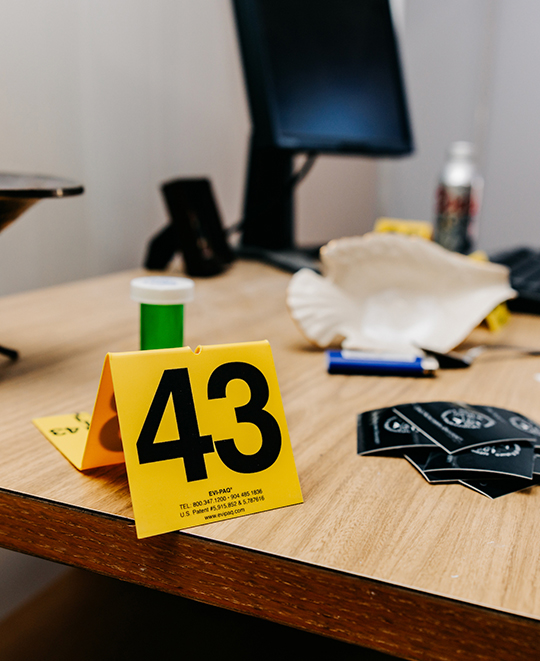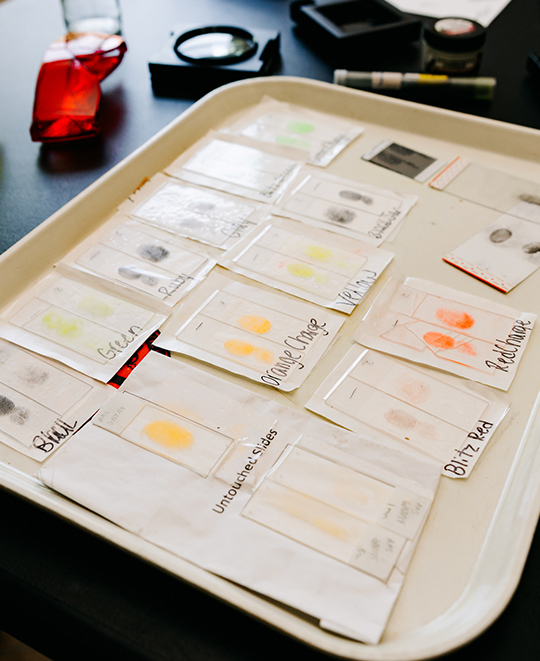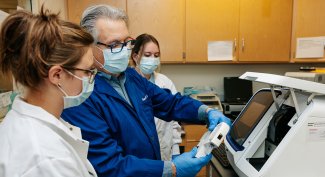
Analyzing blood spatter in ONU’s Crime Scene House and Forensic Science Training Center.
Running fingerprints through one of three workstations housing the AFIX Tracker (Automated Fingerprint Identification Systems).
Extracting human DNA from hair shafts followed by the Sanger Sequencing for human mitochondrial DNA sequence analysis.
Dissecting human cadavers, de-fleshing primate extremities, performing research projects to detect pathogens of Avian influenza, mpox, and Cryptosporidium serpentis.
At Ohio Northern University, forensic biology majors don’t just sit in lectures, they investigate real-world questions in labs and in the field using cutting-edge forensic tools and techniques.
This fall, students will gain hands-on experience with DNA evidence using an Applied Biosystems™ SeqStudio™ Genetic Analyzer, thanks to generous donor support.
The advanced equipment can perform both Sanger sequencing and fragment/STR (Short Tandem Repeat) analysis on DNA samples during the same instrument run, on the same plate. It’s so sensitive it can detect DNA from challenging samples, like fired ammunition cartridges.
Tools like the SeqStudio™ Genetic Analyzer —just now being installed in real crime labs—ensure that ONU forensic biology students graduate industry ready, according to Dennis De Luca, Ph.D., professor of biological sciences. He added that the instrument will also support DNA research in other ONU programs.
ONU’s forensic biology program is the second oldest in Ohio and ranked No. 3 in the U.S. by ForensicsColleges.com.
“Our program is known for its hands-on, immersive learning,” said De Luca. “Every course includes a lab component.”
ONU forensic biology students also minor in chemistry and receive a strong foundation in biology, mathematics, and analytical sciences. The broad-based curriculum prepares them for a variety of career avenues.
Approximately 30-35% of the program’s graduates attend medical school or law school, or obtain advanced degrees in a scientific research field, while the remainder 60-65% find meaningful work in forensic labs, explained De Luca.
For Sarah Sheldon, a junior who discovered her passion for forensics after watching TV shows like CSI and taking a high school forensics biology course, ONU was the perfect fit.
“ONU’s program is really cool because you take a variety of different courses from DNA to anthropology to toxicology,” she said. “You graduate knowing what you want to do.”
For her—that’s anthropology. One of her signature experiences was a summer internship at Texas State University’s Forensic Anthropology Center, home to one of the famous body farms.
Her ONU professors helped her secure this amazing internship.
“They’ve worked in the field for the majority of their careers, so they have extensive real-world connections to set you up,” she explained.
Nina Zibbel, a senior whose dream is to work in a forensic lab, also chose ONU for the hands-on learning.
“We get to participate in crime scene simulations and work with insane instruments—like the genetic analyzer—that most colleges don’t have,” she said.
To learn more about ONU’s forensic biology program, visit onu.edu/academics/forensic-biology
